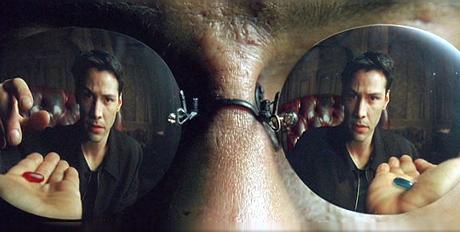Ross and I get along, because we both have a belief in aikido unity. We both try to get as many of the local groups together as possible. He started the branch of Aikido Peace week in Austin, a friendship festival of Austin's dojos.
I like Ross.

Why did you start training?
At the time, I was just looking for something fun and meaningful to
do. I had never been in a fight in my life (still haven't), so I
wasn't really worried about having to protect myself. Still, the self
defense aspect was appealing, and was something that needed to be
taken seriously if it was going to be meaningful as well as just fun.
Why do you continue to?
The world, by which I mean all of us, really needs a better way of
thinking, perceiving, and behaving. We're all motivated by self
interest, but some people are called towards compassion and altruism.
Typically that's presented as a way of privation and sacrifice. I
think aikido and related arts can short circuit the dichotomy and
show that it really is in your self interest to care for others, to
care for society and the environment.
Do you have a phrase(s) that sum up your ideal of martial arts practice?
Walk through doorways, and don't walk through walls.
What do you like to see in a practice?
I really like a group of people that can have fun and be deadly
serious all at the same time. Too often it's one or the other.
What do you not like to see in a practice?
There really is no room nor excuse for abusive behaviors. I don't
like competitive attitudes, and I don't like it when seniors ignore
beginners, or when beginners treat seniors like a utility faucet.
How do you define aiki?
Aiki is the best possible fit under the circumstances. The right fit
also has to be as global or systemic as possible, not merely what is
convenient locally. It's the right thing done in the right way at the
right time.
That's the guiding star, anyway. Aiki is a spectrum, and in our
relative experience, some things are more aiki and some are less.
Things can also be mingled, where there is an admixture of aiki and
what I think of as its opposite, byoki (illness or disease). But if
you look for it, you can almost always find elements of aiki even in
the most byoki situations.
What adjective would you say your technique 'feels' like?
If the door is open, I walk through, so it feels like nothing. If the
door is closed but can be opened, it feels like a friendly handshake.
If the door that I must go through is locked, then I must find the
key, so it feels like discovery. If the door is barred and there is
no other way out, then it feels like prison. If the barred door is
unmovable, then it is simply another wall. If the need is urgent,
then I take whatever is at hand and break through the wall. This
feels like violence, and like liberation. If this fails, it feels
like death.
When does a practice become not-aiki?
As I mentioned, it's really misleading to think of aiki as binary,
where something is or something isn't. aiki But I think there are
practices which point away from that which is more aiki. Assuming
we're practicing among people of good will, I think the greatest
pitfall is the overemphasis on form, rather than the discovery of
where form comes from.
Do you have a favored technique right now?
No. Techniques, as they are commonly called, are really instances
that arise in the passing of time. Certain patterns repeat inevitably
because of our anatomy and physics. We see these patterns and begin
to want to reproduce them, because they seemed essential to a
successful encounter. This is what is normally meant by "technique,"
but this is a kind of putting the cart before the horse. It's like
trying to make the car go faster by pushing on the speedometer.
The essential techniques typically don't have names and may be
difficult to place in form. These have to do with the tactics of
perceiving, of evading, of joining, of following/guiding the energy
flow along its ground path, and the timing and method of release.
What is your favorite practice related book?
I asked Rod Kobayashi Sensei this question once, and he immediately
replied "Hasn't been written yet!" I can answer no better than he.
But I think it does us some good to look at Lao Tsu, Takuan, Musashi,
and many of the others.
What is rank? What does rank reflect?
Rank is best understood as a kind of currency. The rank (as opposed
to the certificate) really belongs to the community. It is the
community's way of bestowing, not value, but the recognition of
value. The person receiving the rank should accept it as a
responsibility. Without undue conceit, we can still feel a kind of
privilege of worthiness, that we are ready to declare that we have
something to offer to others. It should be an expression of both the
capacity and willingness to serve.
What principle have you been focusing on in your practice lately?
Emptiness. For me it's become all about the interplay between the
solid and the empty.
What is your relationship to kata?
To repeat, kata (or form) is simply the shape or geometry or
structure of an evolving system. Systems that are well integrated
will exhibit certain forms, and systems that are sub-optimal will
show signs of stress, strain, or dis-integration. Learning the
morphology can be instructive, as long as we are really examining the
underlying forces or principles that cause the form. This is to say
that you can learn some things by imitating perfect form, but even
when you succeed, it's still an imitation. Rivers have characteristic
flow patterns that we can observe and give names to, but no two
rivers follow the same path. We are advised to flow like water, and
when we do this we can enter into formlessness, so no two
"techniques" can ever be the same. Identifiable patterns will emerge,
but these are artifacts of the flow.
Now, it's true that the flow of a river is shaped by the form of the
valley and the stones. These things are in perpetual intercourse, and
each shapes the other. However, in budo it is the shape of our bodies
that is analogous to the valley or the rock in the stream. It is not
really anything like kotegaeshi or tenchi nage. These are just names
we give to features of the landscape.
What is your relationship to a competitive feeling in training?
Competition is the necessary recognition in budo that some things
work better than others. It is an inescapable truth of the universe
that the more durable things replace the more transitory. Yet there
are constructive ways of achieving durability and there are
destructive ways. Particles form atoms, atoms form molecules, and
molecules create organisms. It's always the ones that fit together
the best that make the most lasting forms, and this is the basis for
aiki. So aiki itself must be understood as being based on this kind
of evolutionary competitiveness. Yet the most advanced forms of aiki
succeed through cooperation, symbiosis, and synergy.
If we examine the history of warfare, we see this is so. However evil
the intent, however horrific the methods, it is almost always the
case that the winning side will be the one that can out-cooperate the
other. This is what I mean by being able to find aiki even in the
most byoki situations.
The point, obviously, is not to use aiki to justify atrocities.
Rather, it's to show the often overlooked power of cooperation.
How has your vision of practice changed as you have gotten older?
I've become much more pragmatic, much more empirical. The mysterious
and the wondrous hold very little attraction for me these days. I
want what is discoverable, teachable, and demonstrable.
Do you have another hobby or art form that you think about in
martial arts terms and ideas?
Everything is budo. But then, everything is everything...
Do you see any problems with the way aikido is practiced in the
world at large, and do you have any recommendations for change?
Of course. Aikido itself is evolving, so it's at a certain stage of
immaturity. There are dojo that are closed to outsiders and closed to
new ideas. There are organizations that are mainly interested in
their own aggrandizement and are not really oriented toward making a
better world. But these are also just like kata. They are forms of
durability, and they can be very successful within certain
definitions of the word. But ultimately rigid forms turn out not to
be so durable, and so to remain vital they must be adaptable and
sexual. By the latter I mean that they cannot forever remain insular
and incestuous, for this is an evolutionary dead end. They must
cooperate, they must court, they must mate, and they must produce
better offspring.
What martial art besides the one you practice do you think is interesting?
I'm very impressed with the training I've seen and enjoyed with
Systema. I have reservations about whether it imparts an experience
that leads to the larger kinds of systemic integration that I speak
of. I have a friend who teaches Silat, and I learn a lot whenever we
get together to play. And while it's not a martial art per se, I look
at the dance form Contact Improv, which has its roots in aikido.
Although it seems to have abandoned its budo heritage, I have to
wonder if it didn't take the best of aikido with it. My aikido should
continually reference what's inherent in Contact Improv.
What inspires you?
Beauty and wise compassion.
Do you have any aspirations for your art, dojo or organization for the future?
Aikido must seek to exist in the real world and fit with 21st Century
realities. It must engage politically and commercially. Aikido must
find a way to engender more professionals in the field. All worthy
endeavors are sustained by amateurs of all skill levels and
dedication, but mature enterprises must have sufficient full-time
professionals in order to move forward with greater efficiency. For
me personally, this is work still unfinished.
Anything on your mind you would like to add?
On a personal note, I would simply like to thank you, Eric, for your
friendship and spirit. I admire what you are doing with your art, and
I am profoundly grateful for the assistance you have given me in my
own efforts. We are different enough to be able to learn from one
another, but alike enough to be able to cooperate, combine, and make
something greater than ether of us.
I thank you for helping amplify my voice.
Ross







Thank you for posting. I very much enjoy reading his posts over at Aikiweb, and the interview rounded out the person a bit. :)
ReplyDelete